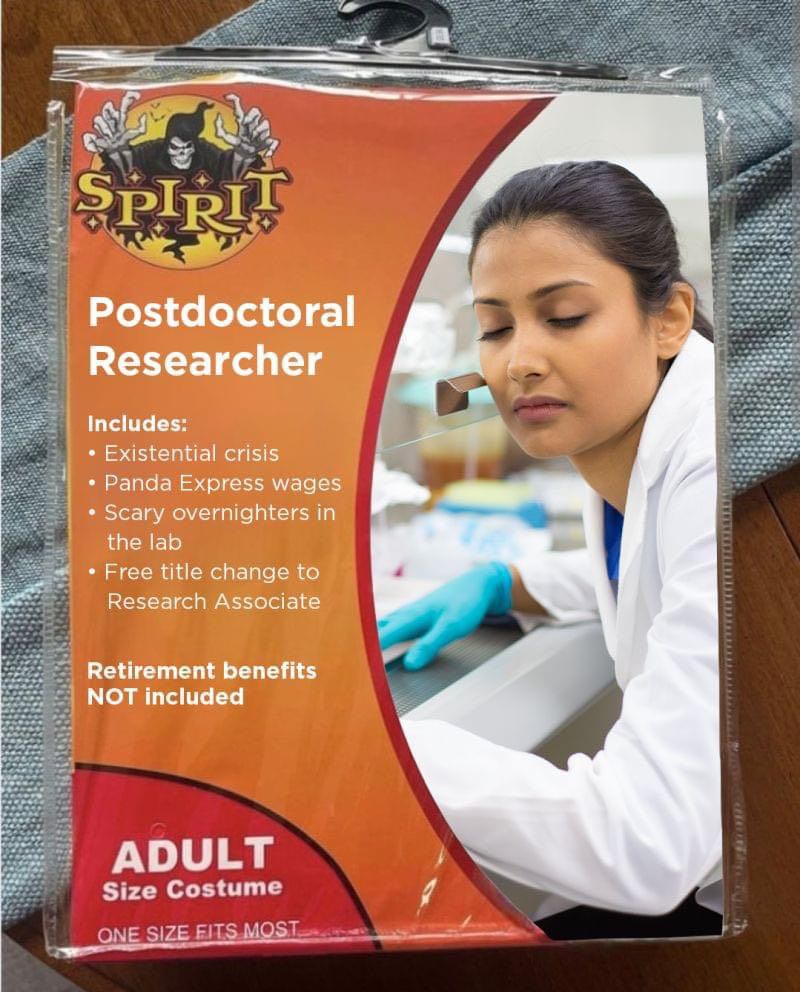
Reposting: Now hiring! Post-doctorate Full-Time Position!
The tale of a further disaster of “disappearing” Postdocs in academia
While the world is moving into a new era after the COVID-19 pandemic, academic institutions worldwide struggle to attract post-doctorate talent to the laboratories. Everyone is aware of the sudden decline of applicants for postdocs in the academy, magazines like Science and Nature have written about this. What is going on?
Recently I have noticed three trends in my social media platforms.
The first corresponds to PIs looking for a post-doctorate candidate, sometimes reposting two or three times since they get zero applicants. I also get many e-mails from PIs in the EU and USA who need help finding talented postdocs to complete their research. We can see Twitter posts begging their network to share the open position with their closest contacts. The funding and the projects are there, standing without people willing to conduct them.
The second trend is Ph.D. students, who have realized there are careers outside academia that do not necessarily require post-doctoral training. “Break the system in academia!” is the standard hashtag in those posts. One LinkedIn post exhorting Ph.D. students to leave academia and remove the postdoctoral training has gained over a thousand likes and reposts.
The final trend is from the industry, hunting Ph.D. holders with a salary that might double or triple what a post-doctoral salary might be, offering benefits such as stability and long-term or even permanent contracts, something that academia cannot provide at this stage of the career.
Of course, I have read the recent articles about this issue published in Science, Nature, and The Hematologist. However, I did not realize how close I was to this reality – perhaps because I love science too much and the only thing I can think of is performing experiments – until I was in a group of Ph.D. students. During that lunch, I was the only postdoc among them, and we were celebrating the recent dissertation of one of them. When the new doctor was asked what his next career step would be, his answer was clear:
“Of course, not staying in academia.”
Everyone laughed and agreed without any trouble. Later, I noticed the same attitude among my peers, and postdocs became more interested in going into industry, making an academic career the exception and last resource.
Unstable conditions for postdocs
Many factors can have contributed to this change. First, most postdocs that go to the USA, Canada, UK, and countries in the EU are foreign nationals on temporary visas. The COVID-19 pandemic made movement between countries almost impossible due to the different restrictions, increasing the waiting times for visas and their prices. Some postdocs were unable to return home to take care of their families for almost two years. The constant bans for travelers from some countries made it very difficult for postdocs to move to another country to perform their research. It is logical to think that with increasing economic pressure it can be tempting to look for other alternatives, they decided to look for careers outside academia, and it is not surprising that they found a career in the industry. Now, we can add the fear of instability due to the war in Ukraine and the non-stop inflation worldwide. The increasing political instability in the world. Unsurprisingly, some international students and postdocs choose to stay home in a safe place with their families.
Insufficient wages
Another factor to take into account is the salary. Postdoctoral wages are insufficient. Even before the COVID-19 pandemic, the war-related rapid inflation, housing shortages, and childcare added enormous pressure to postdocs with inadequate wages. Potential postdocs are highly trained professionals in their 30s, who have been on graduate student stipends for years and are now in their peak years for starting families and building savings for retirement or purchasing a home. The absence of sufficient support for housing, medical care/benefits, and in some countries, childcare continues to worsen and makes postdoctoral training inaccessible and unsustainable for many interested in scientific research.
Welcoming labor market
Finally, scientists with a fresh Ph.D. or experience from a first postdoc with training and skills in many areas of biomedicine often find a welcoming job market outside academia. There are currently plenty of positions in the industry, from small startups to big pharma, offering positions that do not require postdoc expertise. Scientists with computational skills are even more sought after, and data and information companies like Google and Amazon are growing and expanding their frontiers.
“To do the crazy science that you tell me you want to do, there is only one option: go to the industry,” was the advice from one of my mentors before I decided to come to Sweden to pursue an academic career. Apart from higher salaries rapid promotion to senior-level bonuses for good performance and insurance protection, many companies provide assistance during the visa application and housing search process. These benefits make moving to another country easier and cheaper.
Nevertheless, research groups in academia depend significantly on postdocs and their scientific maturity and trained skills. there is not too much formal teaching, postdocs are independent investigators, etc. This is more pronounced in research institutions with no graduate school, such as government laboratories, medical centers, or research institutes. Additionally, have no teaching obligations and can fully immerse themselves in their scientific projects. Long ago, the postdocs were called an “invisible” workforce, being the primary engine driving scientific productivity in research, while being subjected to exploitation, and suffering from many mental health issues due to constant stress.
And now, what will happen? Will a “postdoc” become a career path of the past? In the upcoming posts, I will talk to different HR representatives and Heads of Departments to get a clear idea of how the situation is here in Sweden further investigating the possible preventive ways to avoid the decline of postdocs in academia.


0 comments